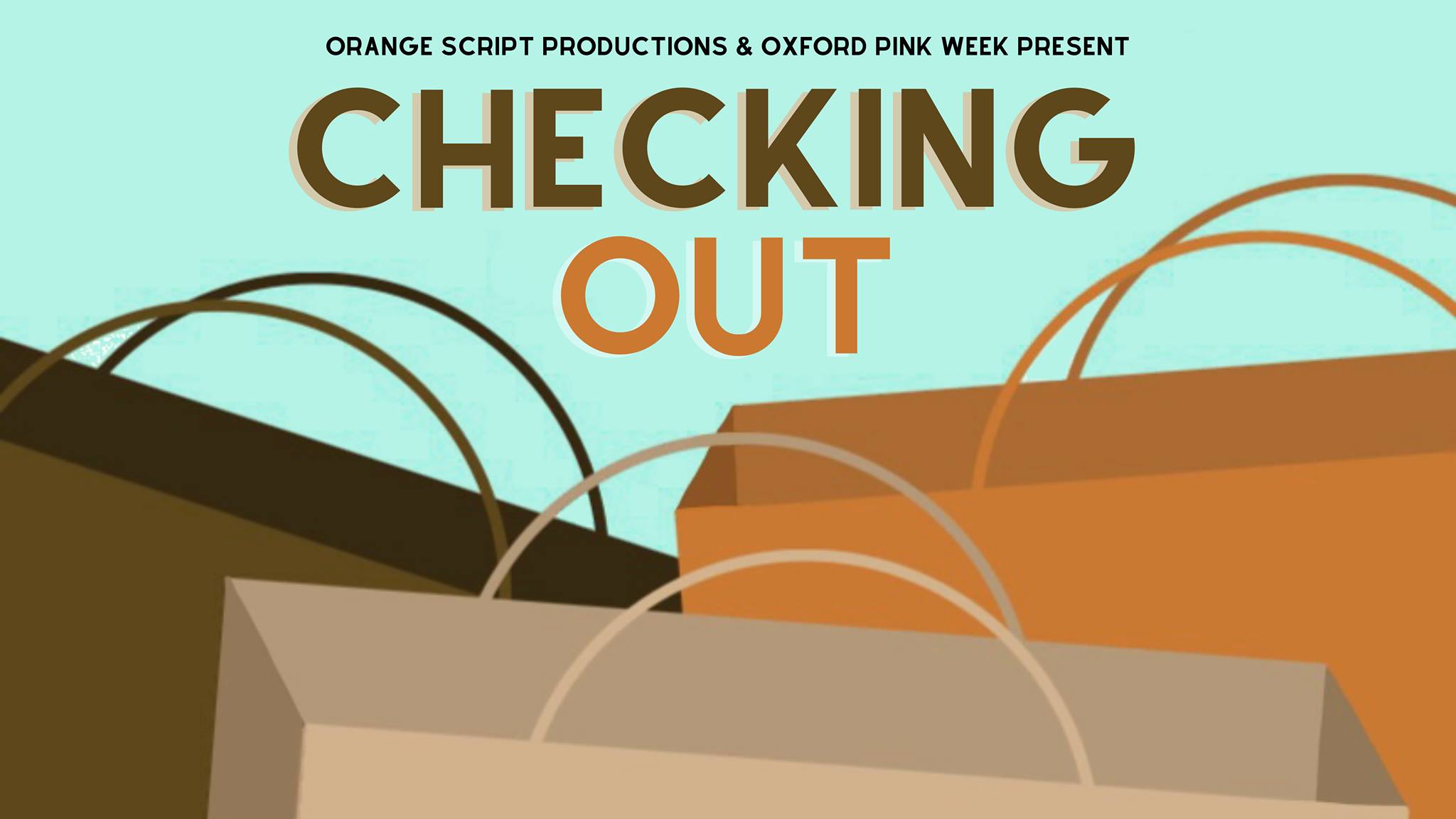It’s wonderful to know that, despite restrictions being placed on students across the country, people are still able to come together and make art. Checking Out, written by William Heath and produced by Orange Script Production, is one of many innovative creative projects to persevere through the limitations of lockdown. Released on 22nd May and available for streaming, the play delves into the complexities of love, the passage of time and the dangers of intimacy, themes that speak to people as they begin to reconnect and reunite.
Spanning several decades, the audience follows the main characters Julie and her recently widowed neighbour Elsie as they slowly build an unlikely friendship. We watch these characters as they discover that Elsie’s deceased husband was not who she thought he was. They take us on an emotional journey to the past, shown through flashbacks to the 1960s.
The small but compelling cast immediately draws the audience into the story. Julie, played by Vicky Stone, introduces us to the neighbourhood, Elsie and Eddie. Stone’s natural performance makes us feel as if we have walked into the home of a good friend. A cursory discussion about the village gossip establishes an intimate relationship between the actor and the audience before we are told about her neighbour and the recent death of her husband. Such personal topics are approached with tenderness and delicacy by the actors who seem to confide wholeheartedly in the audience.
Leah Aspden does a wonderful job expressing the intense emotion of Elsie, a woman who suffers such devastating losses. She effectively portrays the grief Elsie felt in the 1960s after an unexpected loss, a kind of pain she has time to adjust to, whilst also acting out the new sting of betrayal she experiences in the present after the death of her husband and the revelations of his past. Small gestures in which she caresses her dead husband’s plant, which has a permanent fracture in its pot after the shock of revelation causes her to knock it over, suggest that it is intimacy that causes these pangs of loss but also the intervening years of love. The love is still there even if the relationship has a few cracks in it.
Nathaniel Jones also delivers an emotional performance as Eddie in which he reveals the struggles he faced in the past, a much more judgemental time, and his love for the deceased. As he weaves his tale, the scenes and setting slowly shift from an alleyway to a dark and cold park. The pile of bottles grows around him and the story gets darker, cleverly using the staging and props to explore the issue of repressed desires and present the audience with a realistic queer relationship from the 1960s.
The brilliant decision to have the actors talk directly to the camera, reminiscent of Alan Bennett’s Talking Heads, makes the audience sympathise with these characters. Rather than watching the action unfold from the sidelines like voyeurs, the audience is invited into their personal lives. In this way, it is a play about intimacy. Although none of the characters are ever filmed together, the cinematography connects their stories, narratives and lives. When Julie recounts her conversations with Elsie, the older woman’s face fades in and out of focus on the screen. Sometimes all that can be seen is the blank expression of Elsie with Julie’s voice speaking for her. Similarly, when Julie reads from an old diary the shots intermittently show her reading in a closet in the present and the diary’s owner scribbling down his thoughts in the past. Whilst this style of filming can be confusing, as well as the multiple narratives which are told by different main characters, it does help to bring the various stories from the past and present together.
One of the creative ways that the production crew differentiates between these time periods is by using the prop of a clock. The first and final shots of the play focus on this ticking clock that moves backwards when a flashback is about to be introduced. This way, the audience is constantly reminded of the impact of time and change, both on the characters who move through different stages of their lives and on the wider society and its changing attitudes. A gritty and compelling story, the cast and production team have worked to create a moving performance. Subverting the cliché that love conquers all, the audience is left with an impactful final message that seems to summarise the play’s main point: life passes, love remains.
To watch Checking Out, follow http://youtu.be/PBRr9O0hknQ

